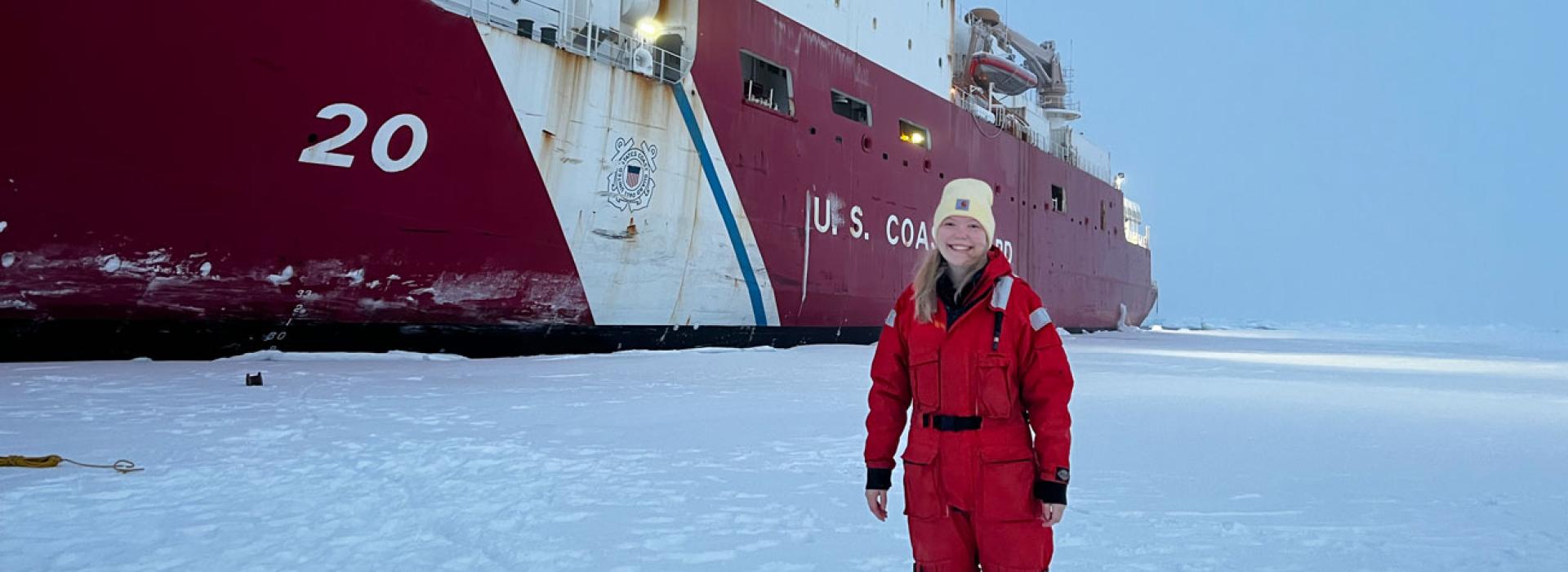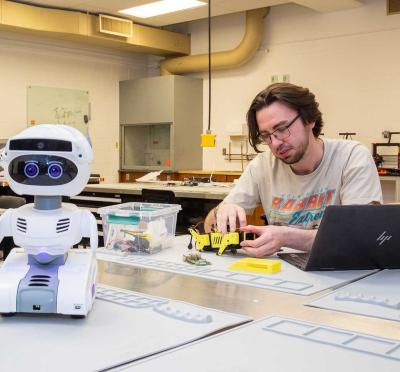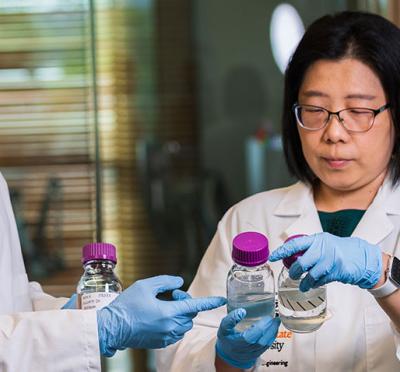Genevieve Coblentz-Strong, a fourth-year student of oceanography and mechanical engineering, is bridging the gap between her dedication to ocean health and interest in design through research.
“Oceanographers rely heavily on the technologies they use, making a background in mechanical engineering valuable,” she said. “I really enjoy talking with researchers to figure out their needs so I can build something useful.”
As an undergraduate researcher at the Innovation Lab, an engineering lab focused on ocean sciences located in the Gladys Valley Marine Studies Building, part of Oregon State University’s Hatfield Marine Science Center in Newport, Oregon, Coblentz-Strong is designing an environmental DNA sampler for marine applications.
Coblentz-Strong learned of this research opportunity through an event sponsored by the Ocean’s 11 student club at Hatfield.

“While we toured the center, someone mentioned the iLab was looking to hire students,” she said. “I thought, ‘That sounds perfect — a great mix between oceanography and engineering,’ and I applied.”
Her instrument is a simple, one-channel design that pumps water through an eDNA filter. This filter collects tissues, such as skin or scales, to indicate the presence of various species in a given region.
The final design will be open-source, meaning researchers will have access to the instrument blueprint, a list of materials, and necessary software to build their own sampler.
“Researchers oftentimes pare down their ultimate goal due to limited funding,” Coblentz-Strong said. “My aim is creating an affordable instrument, so that researchers are not limited in this way.”
In addition to gaining hands-on learning at the iLab, Coblentz-Strong appreciates the lab’s sense of inclusivity.
“Any woman interested in engineering, or even oceanography, should try working in the iLab,” Coblentz-Strong said. “It’s a great location and welcoming environment; I feel very supported there.”
Coblentz-Strong also felt this sense of inclusivity as an undergraduate researcher for the Synoptic Arctic Survey, a researcher-driven initiative that deployed to the North Pole in September-October 2022. Aboard the Healy, the U.S. Coast Guard’s largest vessel and its only icebreaker tailored for Arctic research, the survey gathered baseline data in the Arctic Ocean as it pertains to climate change.
“I’ve been interested in pursuing a career as a marine technician, so it was empowering to speak to one, who is a woman, about her job and what it’s like to work in a field that is often male-dominated,” Coblentz-Strong said.
Within the SAS, Coblentz-Strong was hired, under Laurie Juranek, professor of ocean ecology and biogeochemistry in the College of Earth, Ocean, and Atmospheric Sciences, to analyze marine oxygen concentrations by titrating seawater samples. Her results were used to assess bio-productivity in the Arctic Ocean between Alaska and the North Pole. Historically, little research has been conducted there due to its inaccessibility.
Coblentz-Strong was on board for the polar voyage. As the Healy approached 90 degrees north, everyone began counting down like it was New Year’s Eve, she said.
“When we made it to the North Pole, we all started cheering,” she said. “It was an electric feeling with a great sense of community.”
This sense of community is tightly tied to Coblentz-Strong’s connection to ocean preservation. “I appreciate the intricacy of the ocean and how important it is for our own survival,” Coblentz-Strong said. “It’s a really beautiful place.”
To promote a respectful relationship between humans and the ocean, Coblentz-Strong co-founded Friends of Otter Rock, an advocacy group for the protection of Otter Rock Marine Reserve, in 2020.
In May of 2023, she also started an Oregon State student chapter of Sustainable Ocean Alliance, an international organization for youth interested in developing solutions to ocean-based problems. “The club is not restricted to any one major; we are hoping to gain membership from anyone interested in ocean health,” she said.
Coblentz-Strong plans to continue pursuing career opportunities that focus on the ocean, such as working as a marine technician on a research vessel.
“I’ve always gravitated to the ocean,” she said. “It’s like a puzzle: You never know what you’ll find.”



